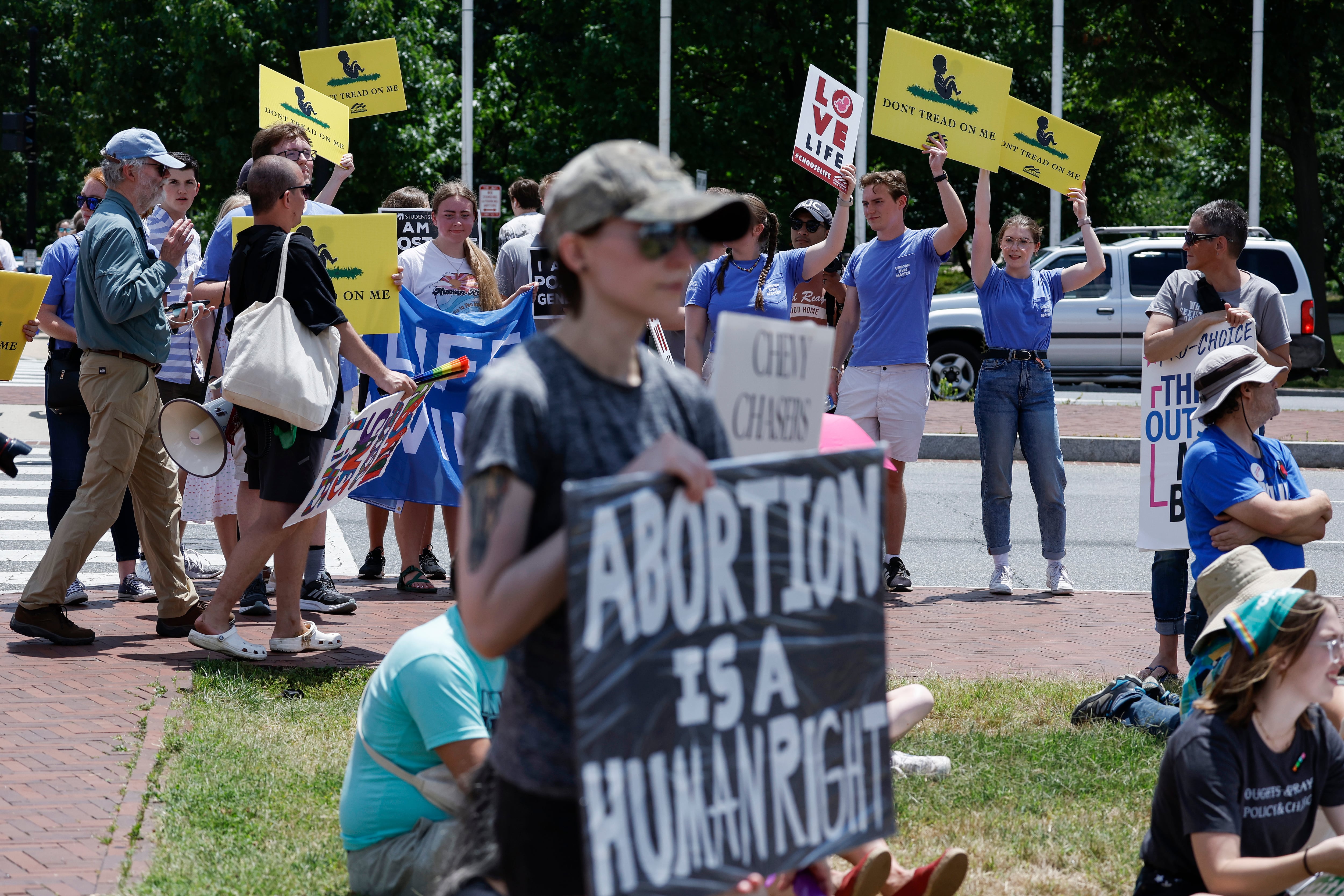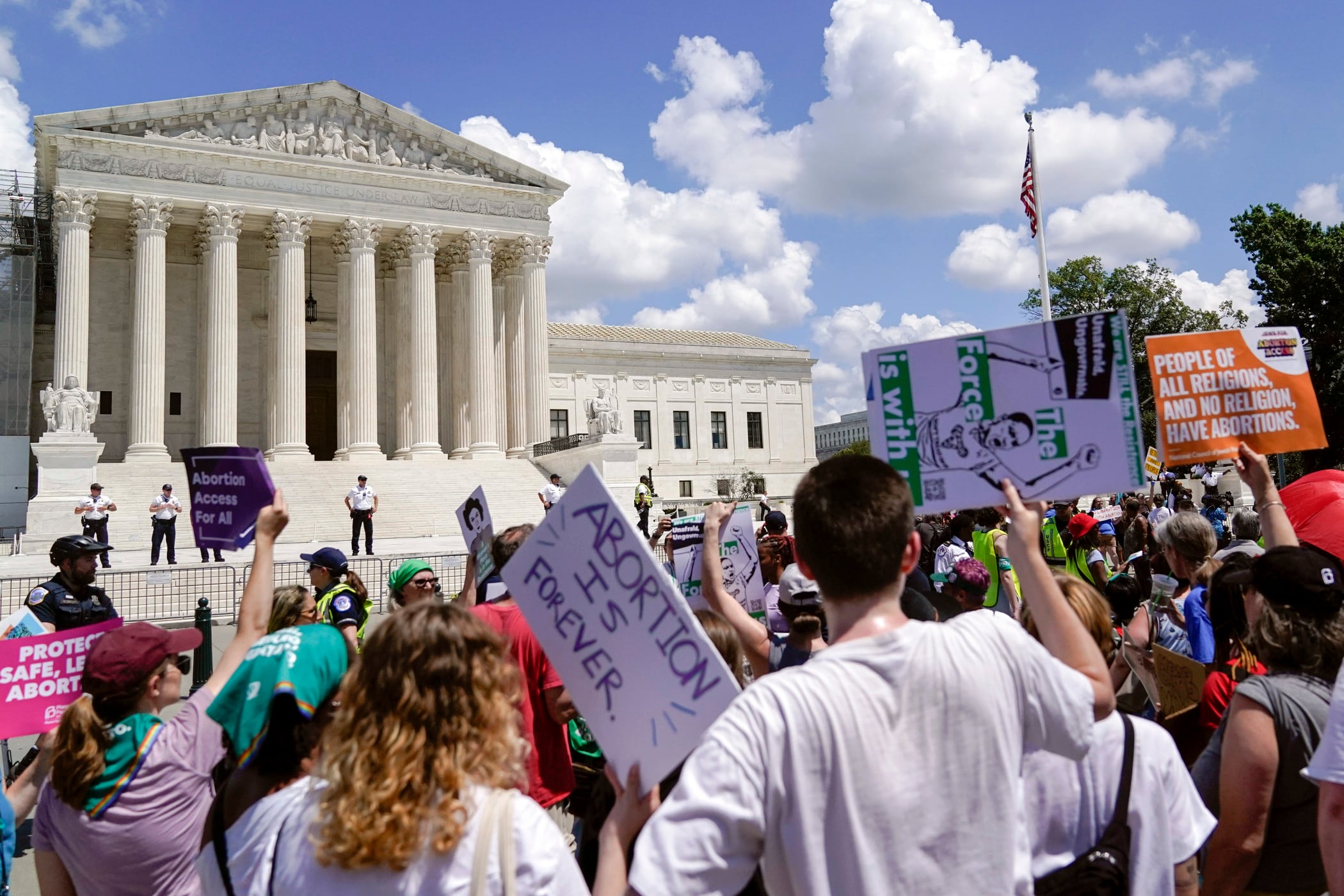Younger, unmarried troops were more likely to get vasectomies following the 2022 Supreme Court decision that struck down nationwide abortion rights, according to a new study in the International Journal of Impotence Research published on May 18 .
Researchers at the Uniformed Services University of the Health Sciences looked at vasectomies of male active-duty, retirees and dependents across all military branches within the military’s health system. Service members aged 18 to 64 had 96,617 vasectomies covered by the system from 2018 to 2022, including a large increase in the months following to the Supreme Court’s Dobbs v. Jackson Women’s Health Organization decision, which put reproductive healthcare laws in the hands of state lawmakers.
The average number of vasectomies in the months after the Dobbs decision increased 22.1% compared to the averages of the months pre-Dobbs from 2018 to 2021.
“We assess that the reversal of Roe v. Wade was a significant driver of a sizable increase in vasectomy incidence within the [military health system], specifically amongst younger and unmarried men,” according to the study. “State level restrictions on abortion access may have mediated this effect; with more stringent restrictions resulting in higher rates of vasectomy utilization.”
The number of vasectomies before the Dobbs decision remained relatively consistent, minus the first year of the COVID-19 pandemic when the number of vasectomies decreased, according to researchers. In the months following the Dobbs decision beginning in June 2022, though, men receiving vasectomies trended younger, unmarried and of a more junior rank than before the Dobbs decision.
RELATED

Men under the age of 30, who weren’t married, were more likely post-Dobbs to have a vasectomy, going against trends before the Supreme Court case, which saw older men at the age of “family completion” having the procedure, researchers wrote.
However, the jump in the procedure’s usage also depended on individual state’s positions on reproductive rights, researchers found.
Researchers compared the increases in two specific states: Texas and Virginia. The states represented a good comparison, researchers said, given their large active-duty service member populations and differences in laws regarding reproductive rights. Texas, which enacted a nearly complete abortion ban after the Dobb’s decision, saw a 29.3% increase in vasectomies among active-duty troops. Virginia, with no similar law, saw a smaller increase in the procedure’s use of 10.6%.
The study pointed to the findings as a sign of a changing reproductive healthcare landscape for service members, given federal law does not allow government dollars to be spent on abortion services, researchers noted.
“These findings demonstrate the robustness of changes in the landscape of vasectomy utilization in a universally insured, geographically representative population,” researchers wrote. “The [military health system] must be cognizant of the profound effect that the Dobbs decision has had on the state of reproductive health care access in America.”
“It must be agile in appropriately allocating reproductive care assets and resources to those areas greatest effected by the reversal of Roe v. Wade to best support the needs of service members and their families,” they added.
Zamone “Z” Perez is a reporter at Military Times. He previously worked at Foreign Policy and Ufahamu Africa. He is a graduate of Northwestern University, where he researched international ethics and atrocity prevention in his thesis. He can be found on Twitter @zamoneperez.





